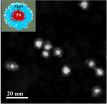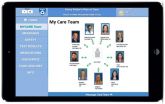(Press-News.org) TORONTO - Hearing loss in adults is under treated despite evidence that hearing aid technology can significantly lessen depression and anxiety and improve cognitive functioning, according to a presentation at the American Psychological Association's 123rd Annual Convention.
"Many hard of hearing people battle silently with their invisible hearing difficulties, straining to stay connected to the world around them, reluctant to seek help," said David Myers, PhD, a psychology professor and textbook writer at Hope College in Michigan who lives with hearing loss.
In a National Council on Aging study of 2,304 people with hearing loss, those who didn't wear hearing aids were 50 percent more likely to suffer from sadness or depression than people who did wear them, he said. Additionally, hearing aid users were much more likely to participate in social activities regularly.
Although a genetic condition caused him to start losing his hearing as a teenager, Myers did not get hearing aids until he was in his 40s. Like many hard of hearing people, he resisted hearing technology. People wait an average of six years from the first signs of hearing loss before getting treatment, according to the National Center for Health Statistics, and adults with hearing loss between the ages of 20 and 69 are half as likely as adults 70 or older to use hearing aids, Myers said. Besides denial, vanity and less awareness of how much they are missing are some reasons for the delay, he added.
"Anger, frustration, depression and anxiety are all common among people who find themselves hard of hearing," Myers said. "Getting people to use the latest in hearing aid technology can help them regain control of their life, and achieve emotional stability and even better cognitive functioning."
Myers cited another study published in the Archives of Neurology that found hearing loss could also be a risk factor for dementia. Scientists who conducted the study said years of sensory loss leaves people more susceptible to dementia. Additionally, the social isolation common among the hard of hearing is another known risk factor for dementia and other cognitive disorders, he said.
A technology known as a hearing loop could also help those with hearing loss become more social and involved, said Myers. Like Wi-Fi for hearing aids, the technology uses an inductive loop to transmit sound signals directly into an in-ear hearing aid or cochlear implant, where it is received by an inductive device called a telecoil. Efforts over the last dozen years to have hearing loops installed in public places around the U.S. have gained momentum in recent years with new American manufacturers stepping up to design and market hearing loop amplifiers for a wide variety of installations, from home TV rooms and taxis to auditoriums and airports.
The loop system, which enables hearing aids to serve as wireless speakers, is popular in Great Britain and Scandinavia but less widespread in the U.S. Proponents of the system say it works especially well in public spaces with background noise or reverberant sound, such as train stations and places of worship. Myers' hearing loop advocacy has contributed to more than 500 hearing loop installations in Michigan. He has also supported Hearing Loss Association of America efforts to advocate for hundreds of installations in Arizona, California, Colorado, Florida, Minnesota, New Mexico, Utah, Washington state and even in New York City taxicabs, as well as the chambers of the U.S. House of Representatives and the Supreme Court.
"Making public spaces directly hearing aid accessible is psychologically important for people with hearing loss," Myers said.
INFORMATION:
Session 2211: "A Quiet World: The Psychology of Hearing and Hearing Loss," Invited Address, David Myers, PhD, Hope College, Friday, 1 - 1:50 p.m. EDT, Room 716A, South Building, Level 700, Metro Toronto Convention Centre, 255 Front St. West, Toronto, Ontario, Canada.
Presentations are available from the APA Public Affairs Office.
Contact: David Myers at dmyers@hope.edu, 616-395-7728 (office) or 616-990-0415 (cell).
The American Psychological Association, in Washington, D.C., is the largest scientific and professional organization representing psychology in the United States. APA's membership includes more than 122,500 researchers, educators, clinicians, consultants and students. Through its divisions in 54 subfields of psychology and affiliations with 60 state, territorial and Canadian provincial associations, APA works to advance the creation, communication and application of psychological knowledge to benefit society and improve people's lives.
Philadelphia - A large randomized clinical trial of an emergency department (ED)-based program aimed at reducing incidents of excessive drinking and partner violence in women did not result in significant improvements in either risk factor, according to a new study from researchers at the Perelman School of Medicine at the University of Pennsylvania. Contrary to previous studies which found brief interventions in the ED setting to be effective for reducing alcohol consumption to safe levels and preventing subsequent injury among patients with hazardous drinking, the new ...
Capture and convert--this is the motto of carbon dioxide reduction, a process that stops the greenhouse gas before it escapes from chimneys and power plants into the atmosphere and instead turns it into a useful product.
One possible end product is methanol, a liquid fuel and the focus of a recent study conducted at the U.S. Department of Energy's (DOE) Argonne National Laboratory. The chemical reactions that make methanol from carbon dioxide rely on a catalyst to speed up the conversion, and Argonne scientists identified a new material that could fill this role. With ...
For years chemotherapy has been one of most common methods of treating cancer, but it comes with the substantial drawback of effecting healthy cells in the same way that it effects cancerous cells. This means that a subject of chemotherapy can experience great pain and sickness as a side effect of the potentially lifesaving treatment. A solution to this problem is targeted therapy, or the use of drugs, which more specifically targets cancer cells while ignoring nearby healthy cells. Targeted therapy is dependent on drugs which are tailored to inhibited cancer cell growth, ...
A new test developed by UBC researchers allows physicians to measure the effects of gene silencing therapy in Huntington's disease and will support the first human clinical trial of a drug that targets the genetic cause of the disease.
The gene silencing therapy being tested by UBC researchers aims to reduce the levels of a toxic protein in the brain that causes Huntington's disease.
The test was developed by Amber Southwell, Michael Hayden, and Blair Leavitt of UBC's Centre for Molecular Medicine and Therapeutics and the Centre for Huntington Disease in collaboration ...
This news release is available in Japanese.
There are no magic bullets for global energy needs. But fuel cells in which electrical energy is harnessed directly from live, self-sustaining chemical reactions promise cheaper alternatives to fossil fuels.
To facilitate faster energy conversion in these cells, scientists disperse nanoparticles made from special metals called 'noble' metals, for example gold, silver and platinum along the surface of an electrode. These metals are not as chemically responsive as other metals at the macroscale but their atoms become more ...
Scientists searched the chromosomes of more than 4,000 Huntington's disease patients and found that DNA repair genes may determine when the neurological symptoms begin. Partially funded by the National Institutes of Health, the results may provide a guide for discovering new treatments for Huntington's disease and a roadmap for studying other neurological disorders.
"Our hope is to find ways that we can slow or delay the onset of Huntington's devastating symptoms," said James Gusella, Ph.D., director of the Center for Human Genetic Research at Massachusetts General ...
Scientists on the NOvA experiment saw their first evidence of oscillating neutrinos, confirming that the extraordinary detector built for the project not only functions as planned but is also making great progress toward its goal of a major leap in our understanding of these ghostly particles.
NOvA is on a quest to learn more about the abundant yet mysterious particles called neutrinos, which flit through ordinary matter as though it weren't there. The first NOvA results, released this week at the American Physical Society's Division of Particles and Fields conference ...
WORCESTER, MA -- Researchers at the University of Massachusetts Medical School have found that Google Glass, a head-mounted streaming audio/video device, may be used to effectively extend bed-side toxicology consults to distant health care facilities such as community and rural hospitals to diagnose and manage poisoned patients. Published in the Journal of Medical Toxicology, the study also showed preliminary data that suggests the hands-free device helps physicians in diagnosing specific poisonings and can enhance patient care.
"In the present era of value-based care, ...
Health care organizations have been implementing health information technology at increasing rates in an effort to engage patients and caregivers improve patient satisfaction, and favorably impact outcomes. A new study led by researchers at Brigham and Women's Hospital (BWH) finds that a novel web-based, patient-centered toolkit (PCTK) used by patients and/or their healthcare proxys in the hospital setting helped them to engage in understanding and developing their plan of care, and has the potential to improve communication with providers. The results of the study are ...
Australian scientists have discovered many tropical, mountaintop plants won't survive global warming, even under the best-case climate scenario.
James Cook University and Australian Tropical Herbarium researchers say their climate change modelling of mountaintop plants in the tropics has produced an "alarming" finding.
They found many of the species they studied will likely not be able to survive in their current locations past 2080 as their high-altitude climate changes.
The Wet Tropics World Heritage Area in Queensland, Australia is predicted to almost completely ...




